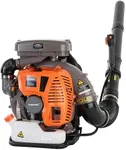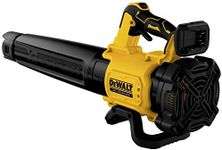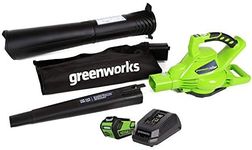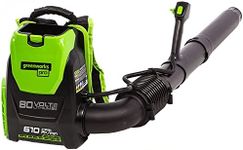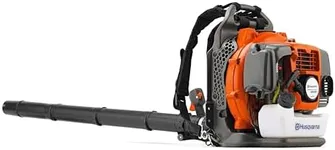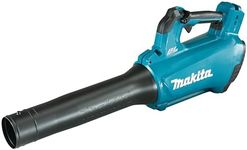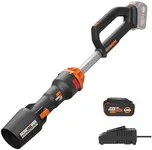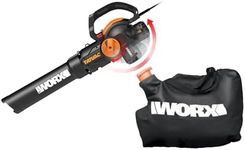Buying Guide for the Best Leaf Blowers
Choosing the right leaf blower can make yard work much easier and more efficient. The best leaf blower for you depends on the size of your outdoor space, the type of debris you need to clear, and how comfortable you want the tool to be during use. By understanding the main features and specifications, you can find a model that matches your needs and makes your outdoor chores less of a hassle.Power SourceLeaf blowers come in three main types: corded electric, battery-powered (cordless), and gas-powered. The power source affects how long you can use the blower, how much maintenance it needs, and how portable it is. Corded electric models are lightweight and require little maintenance, but you need to stay near an outlet. Battery-powered blowers offer more freedom to move around but are limited by battery life. Gas-powered blowers are the most powerful and can run for a long time, but they are heavier, noisier, and require more upkeep. Think about the size of your yard and how much mobility you need to decide which power source fits your routine.
Air Speed (MPH)Air speed, measured in miles per hour (MPH), tells you how fast the air comes out of the blower. Higher air speed means the blower can move heavier debris, like wet leaves or small twigs. Lower air speed is usually enough for dry leaves and light debris. For small patios or decks, a lower air speed is fine, but for larger yards or tougher jobs, look for a higher MPH rating.
Air Volume (CFM)Air volume, measured in cubic feet per minute (CFM), shows how much air the blower moves. A higher CFM means the blower can clear a larger area more quickly. Low CFM is suitable for light, occasional use, while high CFM is better for big yards or heavy leaf fall. If you have a lot of ground to cover or need to move piles of leaves, prioritize a higher CFM.
WeightThe weight of a leaf blower affects how comfortable it is to use, especially for longer periods. Lighter models are easier to handle and less tiring, making them a good choice for smaller jobs or for users who prefer less strain. Heavier blowers may offer more power but can be harder to carry around, especially if you have a large area to cover. Consider your own strength and how long you expect to use the blower at a time.
Noise LevelLeaf blowers can be quite loud, and noise level is measured in decibels (dB). Lower noise levels are better for your ears and for keeping peace with neighbors. Electric and battery-powered models are usually quieter than gas-powered ones. If you live in a neighborhood with noise restrictions or want to avoid disturbing others, look for a blower with a lower dB rating.
Ergonomics and FeaturesErgonomics refers to how comfortable and easy the blower is to use. Features like adjustable handles, padded grips, and variable speed controls can make a big difference in comfort and control. Some models also offer vacuum or mulching functions, which can be handy for collecting and reducing leaf volume. Think about how much time you'll spend using the blower and whether extra features would make your work easier or more enjoyable.
